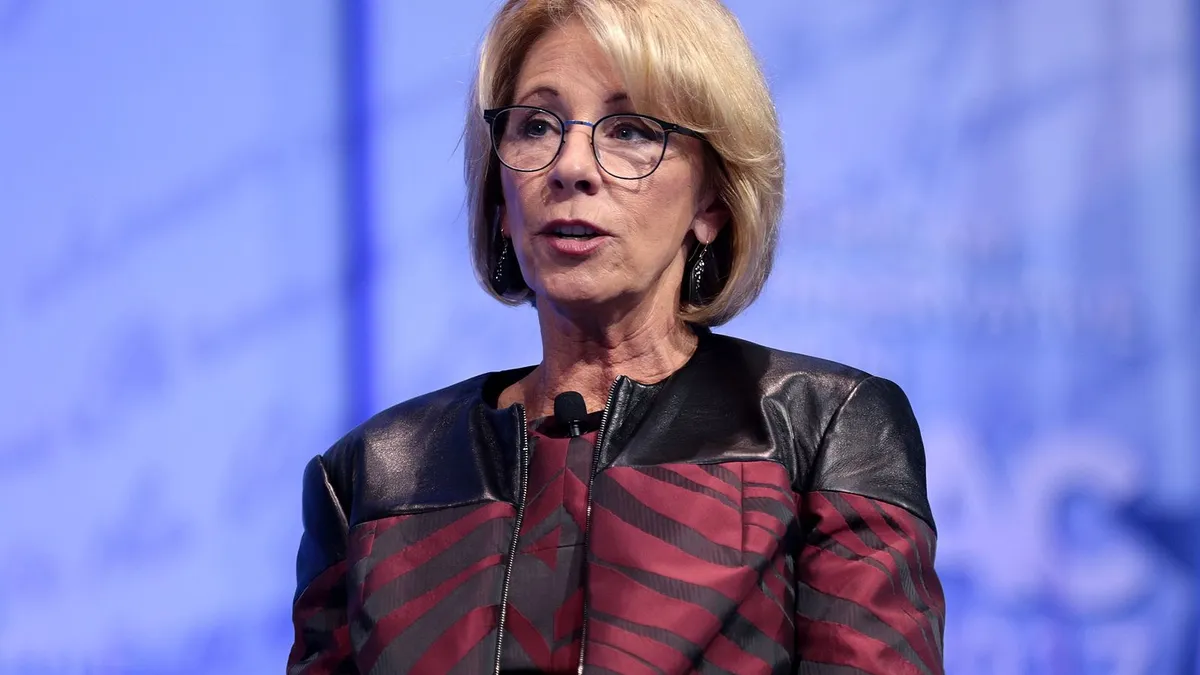UPDATE: The U.S. Education Department today released new rules that govern how colleges respond to sexual misconduct on campus, The Washington Post reported. As anticipated, the rules raise the bar on what cases qualify for colleges' intervention under Title IX, relax how they can respond, and let the accused and their accusers cross-examine each other.
Dive Brief:
- The Trump administration's Education Department has received a mix of scrutiny and support within higher education for its efforts to rewrite oversight of how colleges respond to sexual misconduct on campus, particularly after a draft version leaked in August and showed the department was likely to take a different tack than that of the Obama administration.
- Many higher ed administrators thought the Obama guidance was too constraining, and DeVos withdrew the guidance last year and replaced it with interim guidance that narrowed criteria around the handling of sexual assault on campus.
- The rules are subject to a public comment period, and they will be implemented with the force of law.
Dive Insight:
Several colleges and universities are grappling with high-profile sexual misconduct cases that draw attention to lacking accountability and mismanagement of victim complaints on campuses across the U.S., in some cases spanning decades.
In August, Max Nikias stepped down as president of the University of Southern California amid accusations that he and other university officials mishandled sexual misconduct complaints concerning campus gynecologist George Tyndall. Nikias will retain the role of president emeritus, USA Today reported. Meanwhile, the university set up an Office of Professional Ethics to review such issues in the future, the BBC notes.
In January, Michigan State University President Lou Anna Simon resigned amid criticism that the university ignored complaints about sexual abuse from victims of Larry Nassar. The former physician for the university and Olympic gymnastics teams was sentenced earlier this year to 40 to 175 years in prison on seven first-degree sexual conduct charges in addition to charges in other courts in Michigan and Texas.
A Wall Street Journal report in June revealed that 22 public university systems paid more than $10.5 million across 59 settlements connected with sexual harassment claims in 2016 and 2017. The settlements primarily concern claims that universities failed to adequately respond to misconduct accusations. Some aimed to avoid drawn-out litigation by offering accused faculty and staff the opportunity to resign or retire early, the Journal noted.
Bipartisan legislation introduced in February aims to improve how colleges and universities handle sexual misconduct complaints. It would require one or more leader at the level of the president or board to review all such cases and also confirm that they haven’t interfered with the related investigations.
Correction: A previous version of this article incorrectly identified Max Nikias. He is the former president of the University of Southern California.














